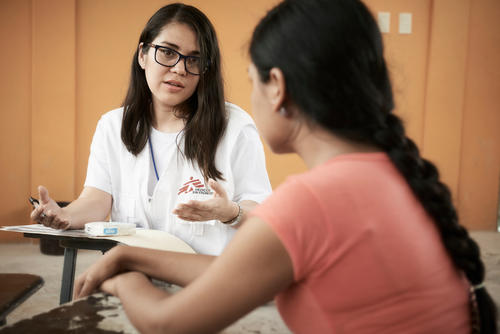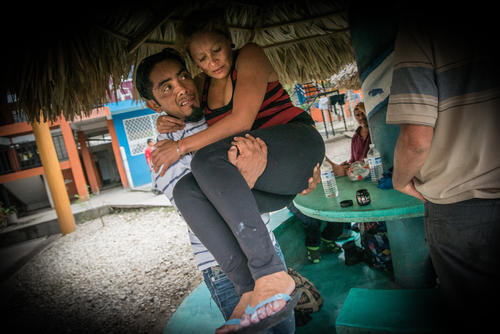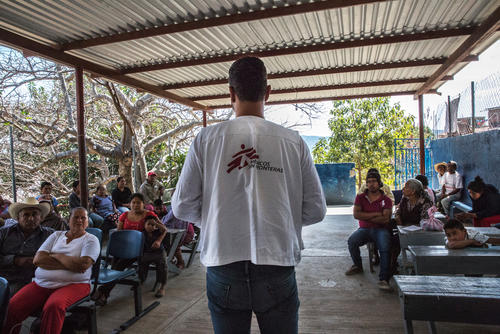Migrants and refugees fleeing danger in Central America are trapped and exposed to more violence in Mexico due to ever tighter and more callous United States border control policies, said Médecins Sans Frontières (MSF) on World Refugee Day.
The violence in Honduras, Guatemala and El Salvador continues to force thousands of people to head north in search of refuge, even as the Trump administration imposes cruel practices intended to deter them from seeking asylum. Last week, US Attorney General Jeff Sessions ruled that people submitting claims related to domestic or gang violence will not qualify for asylum—a decision that effectively closes the door to many Central Americans fleeing for their lives. In recent weeks, authorities have stepped up criminal prosecutions of people attempting to cross the border, going so far as to forcibly separate children from their families.
Mexico is effectively becoming a final destination for thousands of vulnerable refugees and migrants, left exposed to further violence by criminal gangs who prey on them.
"We are seeing a population that is increasingly trapped in Mexico. They can't return to the countries they escaped from for fear of violence. And now they can’t find safety in the US as the administration punishes those who try to cross the border with increasingly harsh and cruel measures,” says Marc Bosch, MSF's Operations Manager for Latin America. “We are alarmed by the terrible policy of separating children from their parents. This is compounded by the recent US decision not to accept gang violence or sexual violence as the basis for asylum claims.”
Initial talks between the US and Mexican governments in May considered the possibility of converting Mexico into a “safe third country”. This would force asylum seekers to apply in Mexico, preventing them from reaching the US to demand refuge.
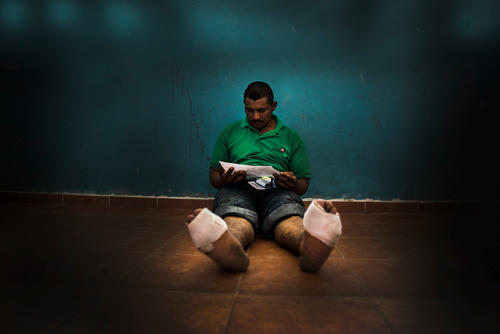
Mexico is not a safe country for people fleeing violence in the Northern Triangle of Central America (NTCA)
More than 20,000 migrants or refugees are kidnapped in NTCA countries – Guatemala, Honduras and El Salvador – every year, according official sources (CNDH). Sixty-eight per cent of the migrants and refugees interviewed by MSF in places along the transit route in Mexico had been exposed to violence. Nearly one-third of the women surveyed were sexually abused. Central American gangs are operating in the south of Mexico and are responsible of some of the attacks against migrants.
MSF medical data shows that a quarter of our medical consultations for migrants and refugees in Mexico are related to injuries from intentional violence. Ninety per cent of our mental health consultations are related to violence. Our patients are suffering from anxiety, depression, and post-traumatic stress disorder, among other conditions, which have severe consequences on their ability to function. Women, children, and members of the Lesbian-Gay-Bisexual-Transgender-Queer (LGBTQ) community are more vulnerable to certain types of violence and require specific protection measures that are not effectively in place in Mexico.
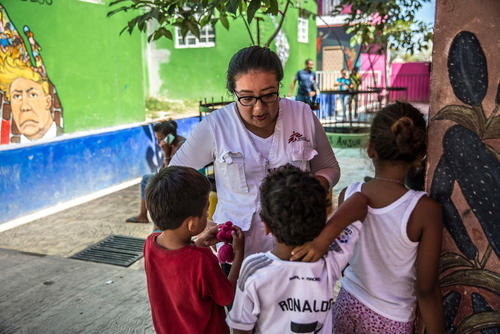
US and Mexico must meet its responsibilities towards populations fleeing violence
According to official figures from the United Nations Refugee Agency, 108,500 people from the NTCA applied for asylum in the US in 2017, while only 8,700 chose to carry out this process in Mexico. Staying in Mexico is not a viable alternative for many people who fear the violence of criminal organisations there. The deadlock is particularly brutal for minors, whether travelling alone or accompanied.
"Mexico should be able to guarantee protection, healthcare and safe passage to migrants and refugees,” says Bosch. “The US also needs to fulfil its international responsibilities and recognise the status of asylum-seekers and refugees. The US continues to have an essential role play in addressing this humanitarian crisis.”
In 2017, the scale of the crisis led MSF to publish a report: Forced to flee the Northern Triangle of Central America: A forgotten humanitarian crisis. The situation is now getting worse, causing greater suffering to a population that has been subjected to tremendous violence in their countries of origin and in their transit through Mexico. Now they must also endure an unprecedented level of institutional violence from the US, where they are not only prevented from claiming the protection they need but are facing additional threats. People seeking safety, and their children, are being detained under inhumane conditions and face the risk of deportation, in violation of the principle of non-refoulement.
MSF provides medical and mental health care to migrants and refugees from Honduras, Guatemala and El Salvador moving along the transit routes through Mexico. We work in migrant shelters and mobile clinics along the railway lines and in three locations on the migrant routes (in Tenosique, Coatzacoalcos and Reynosa). We also run a comprehensive care centre for victims of extreme violence in Mexico City. This centre opened in 2016 in response to the medical and humanitarian needs of people in transit.




